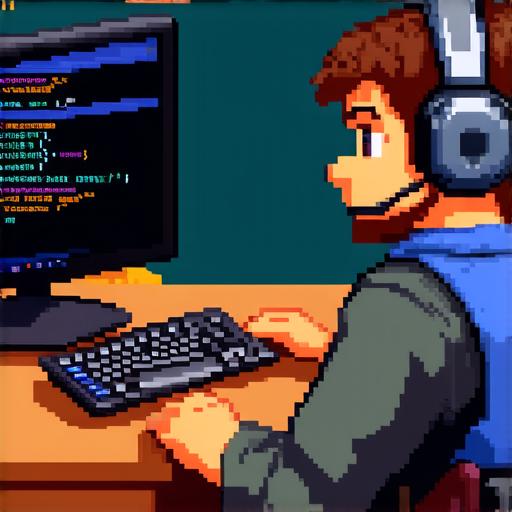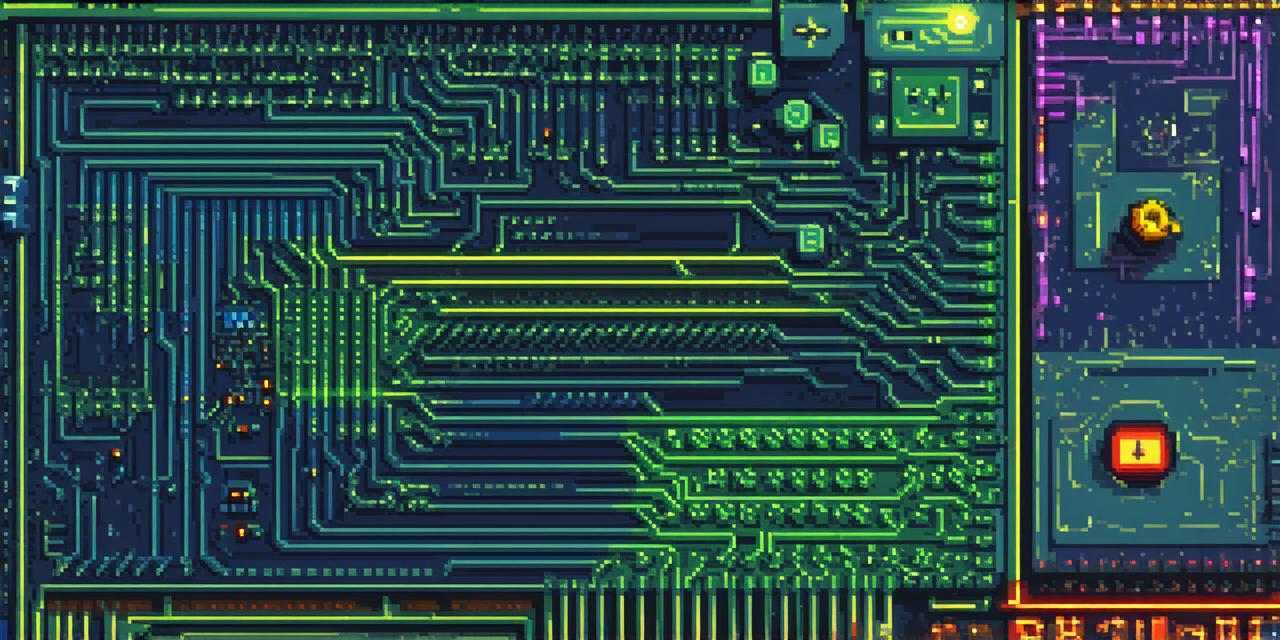As a programmer, you play an essential role in creating immersive and engaging video games that captivate players worldwide. In this article, we’ll explore the various tasks and responsibilities involved in programming video games and how you can contribute to making them even better.
Tasks and Responsibilities of Programmers in Video Game Development
1. Designing the game mechanics
Programmers are responsible for designing the game mechanics, which include rules, objectives, and interactions that players will experience while playing the game. They work closely with game designers to create code that brings their vision to life. For instance, a programmer might develop a combat system that allows players to engage enemies in different ways or a puzzle-solving system that challenges players’ problem-solving skills.
2. Writing and debugging code
Programmers are responsible for writing the code that powers the game’s features and functionalities. They write code using programming languages like C++, C, Python, and Java. Once the code is written, programmers must debug it to ensure that it runs smoothly without errors. Debugging involves identifying and fixing bugs that can cause the game to crash or behave unexpectedly.
3. Optimizing game performance
Programmers are responsible for optimizing game performance by ensuring that the game runs smoothly, loads quickly, and responds promptly to user inputs. They use techniques like profiling and benchmarking to identify areas where the game can be improved and optimized for better performance.
4. Collaborating with other teams
Programmers work closely with other teams, including artists, designers, and producers, to ensure that the game’s features are integrated seamlessly. They collaborate with these teams to share code and debug issues, ensuring that the game is functional and enjoyable for players.
5. Maintaining and updating the game
Programmers are responsible for maintaining and updating the game after its release. They fix bugs, add new features, and improve game performance to ensure that players continue to enjoy the game. They also work with other teams to create DLC (downloadable content) that extends the life of the game and keeps players engaged.
Case Studies: Programmers in Video Game Development
1. John Carmack, id Software
John Carmack is a programmer who co-founded id Software, the company behind popular video games like Doom and Wolfenstein. He played an essential role in creating the game’s graphics engine, which allowed for the creation of 3D graphics and helped establish id Software as a leader in the gaming industry.
2. Markus Persson, Minecraft
Markus Persson is a programmer who created Minecraft, one of the most successful video games of all time. He wrote the game’s code from scratch using Java, and his creativity and ingenuity helped establish Minecraft as a popular and engaging game that captured the imagination of millions of players worldwide.
3. Nolan Bushnell, Atari
Nolan Bushnell is a programmer who co-founded Atari, one of the first video game companies. He created the game Pong, which was one of the first commercially successful video games and helped establish the gaming industry. He also played an essential role in creating other popular games like Space Invaders and Breakout.

How Programmers Can Help Make Video Games Even Better
1. Innovation and creativity
Programmers can help make video games even better by bringing new ideas and innovations to the table. They can push the boundaries of what’s possible in gaming by developing new game mechanics, graphics engines, and other technologies that enhance the player experience.
2. Collaboration and communication
Programmers can contribute to making video games even better by collaborating with other teams and communicating effectively. They can share their knowledge and expertise with other team members, provide feedback on design ideas, and work together to create a cohesive and engaging game experience.
3. Continuous learning and improvement
Programmers can help make video games even better by continuously learning and improving their skills. They can stay up-to-date with the latest technologies, programming languages, and development tools, and use this knowledge to create more efficient, effective, and engaging games.
Conclusion
In conclusion, programmers play a vital role in creating immersive and engaging video games that captivate players worldwide. By designing game mechanics, writing and debugging code, optimizing game performance, collaborating with other teams, and maintaining and updating the game, programmers can help make video games even better. Through innovation, creativity, collaboration, and continuous learning, programmers can contribute to making video games an even more enjoyable and engaging experience for players.
